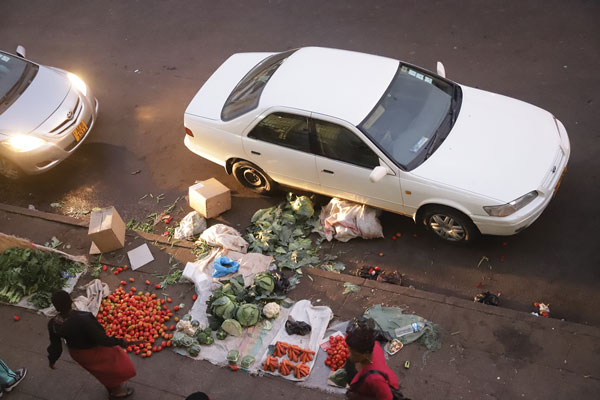
PEOPLE working in the informal sector say that they are struggling to make ends meet during the lockdown period where modalities for them to begin operating again in safe environments have still not been crafted.
BY VENERANDA LANGA
Government extended the lockdown, but eased some of the restrictions to allow people in formal employment to go back to work, keeping the informal sector on ice as a measures to control the spread of the deadly coronavirus.
In an interview with NewsDay yesterday, Cosmas Sithole, a vendor who sells roasted maize in central Harare, said life has been tough for him and his family since the lockdown came into force on March 30.
“I used to operate from the Avenues area in the evenings — targeting workers that will be returning home after a long day of work and the sales were very good. I would make around $350 on a good day after selling about 50 roasted cobs at $7 each,” Sithole said.
“This enabled me to pay rent and buy food as well as send my two children to school.” Sithole said while he made good money, his informal business depended on the availability of fresh maize. With the COVID-19 striking during the maize harvesting season, he says this will affect his trade.
Another vendor living with a disability, Marko Sibanda, who used to survive by selling snacks and cigarettes, said life will never be the same again.
“I am very vulnerable right now together with my family. I do not even know where I will get my next meal because I am grounded,” Sibanda said.
- Chamisa under fire over US$120K donation
- Mavhunga puts DeMbare into Chibuku quarterfinals
- Pension funds bet on Cabora Bassa oilfields
- Councils defy govt fire tender directive
Keep Reading
Although illegal vending is not allowed in Zimbabwe, most people in the country have turned to informal employment and the extended lockdown will subject them to abject poverty. Government promised to dish out $200 cushioning allowances to vulnerable people, but the money has not yet been disbursed six weeks into the lockdown.
A recent report by the International Monetary Fund states that Zimbabwe is only second to Bolivia in the world in terms of informal economies and is rated 62, 3% informal.
Legal think-tank Veritas said people in the informal sector were the most vulnerable during the lockdown as they no longer had means to survive.
“The informal worker is particularly the most vulnerable during the current COVID-19 shutdown period. Measures to assist informal workers are essential, and they should be thorough, implementable, practical and relevant to the people,” Veritas said in a statement.
Veritas said it was crucial for government to come up with measures pertaining to vendors as they constitute more than 60% of the economy and Zimbabwe’s economic recovery post-COVID 19 depends on them.
“The sector will be crucial to the post-COVID-19 recovery of the economy. Its workers should not be overlooked during this time.”
According to the International Labour Organisation, up to 300 million jobs are at risk worldwide due to the coronavirus pandemic.











